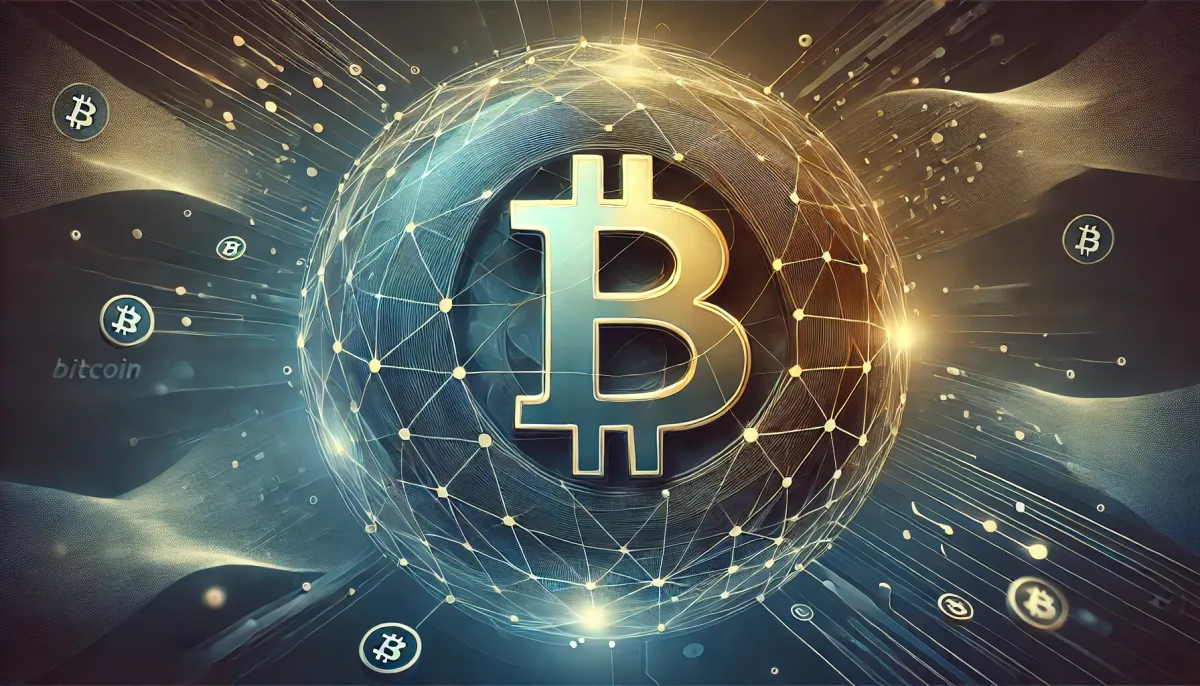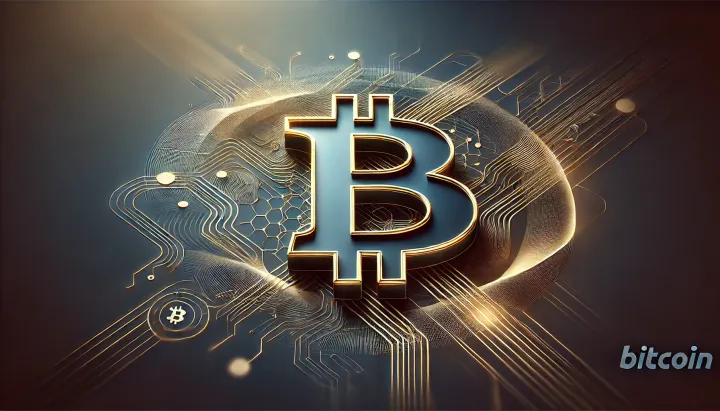Why Bitcoin Is More Than Just Money: Unpacking Its Broader Societal Impacts
The October 3, 2024 episode of Bitcoin for Millenials featured an interview with Brian De Mint, who elaborates on the significance of Bitcoin beyond its monetary function, focusing on its transformative power across various aspects of life, including moral, philosophical, and economic dimensions.

Briefing Notes
My 'briefing notes' summarize the content of podcast episodes; they do not reflect my own views. If you have comments about this briefing note, please leave a comment below (requires signing up for a free blog subscription). Note that some of the podcast episodes I summarize may be sponsored: don't trust, verify, if the information you are looking for is to be used for decision-making.
Summary
In the October 3, 2024 episode of Bitcoin for Millenials, Brian De Mint discusses Bitcoin’s potential to drive not just economic, but also moral and societal change. Bitcoin’s decentralized nature offers an alternative to inflationary fiat systems, fostering individual economic freedom and ethical financial practices. De Mint argues that Bitcoin empowers individuals to make economic decisions that reflect their values, while also serving as the foundation for a parallel economy that resists centralized control.
Take-Home Messages
- Bitcoin offers moral and financial empowerment: Its decentralized structure aligns with ethical and philosophical views of fairness, providing a transparent and sound monetary system.
- Fiat systems exacerbate societal issues: Money printing and inflation lead to distorted incentives, authoritarian policies, and societal decay, particularly during crises like COVID-19.
- Economic choices as votes: Every financial decision is a vote either for centralized, exploitative systems or for decentralized, transparent ones.
- Bitcoin enables a decentralized economy: As a foundational technology, Bitcoin allows for the creation of parallel economies that operate outside of centralized control.
- Trustless systems foster autonomy: Bitcoin’s ability to operate without third-party trust enhances individual sovereignty and financial independence.
Overview
In this discussion, Brian De Mint explores why Bitcoin is more than a form of money, framing it as a tool for societal transformation. Bitcoin's decentralized nature allows individuals to opt out of centralized, fiat-based systems that, according to De Mint, are morally and economically corrupt. He argues that fiat currencies, particularly during times of crisis like COVID-19, enable governments to enact authoritarian policies and distort societal incentives through money printing.
The conversation delves into the power of economic votes, highlighting how every financial decision is a vote for or against specific economic systems. De Mint explains that the compounding effect of these decisions can lead to substantial societal change, particularly as more individuals adopt Bitcoin. He posits that Bitcoiners are at the forefront of a new parallel system that will eventually rival and replace centralized fiat economies.
De Mint also emphasizes the philosophical and ethical dimensions of Bitcoin. He draws connections between Bitcoin's transparent, trustless system and religious teachings on fairness, arguing that sound money can contribute to a more just society. The discussion concludes with an optimistic view of the future, where Bitcoin's technological innovations and growing social momentum will lead to broader adoption and create a more decentralized, fairer economy.
Stakeholder Perspectives
- Policymakers: Will likely be concerned with Bitcoin's challenge to centralized monetary control but may also explore how its decentralized nature could introduce more transparency and accountability into financial systems.
- Investors: Likely to see Bitcoin as a hedge against inflation, particularly in periods of fiat instability, positioning it as a long-term store of value.
- Libertarians and Advocates of Individual Sovereignty: Strong supporters of Bitcoin for its decentralization, viewing it as a vehicle for economic and personal freedom.
- Religious/Ethical Groups: Likely to appreciate Bitcoin’s alignment with moral teachings on fairness and responsible stewardship, seeing it as a moral alternative to fiat money.
- General Public: Likely to remain skeptical due to perceived volatility but may find appeal in Bitcoin’s promise of financial empowerment and autonomy from centralized control.
Implications
The podcast highlights important implications for various stakeholders, particularly in how Bitcoin offers a solution to the growing concerns over centralized monetary systems. The inflationary practices of fiat systems, coupled with central banks’ money printing during crises, have contributed to economic instability and societal harm. For policymakers, Bitcoin presents a new approach to financial systems—one based on transparency and decentralization, which may offer insights for future monetary policy.
For individuals and investors, the adoption of Bitcoin represents a shift away from fiat currencies prone to inflation and governmental control. Bitcoin’s fixed supply and decentralized structure provide a hedge against the failures of fiat currencies, potentially leading to more sustainable financial practices. The implications extend beyond finance, as Bitcoin offers an alternative model of governance and economic coordination that could disrupt traditional power structures.
Future Outlook
Bitcoin’s decentralized and trustless system positions it as a catalyst for major societal changes. As more individuals and institutions adopt Bitcoin, it is likely to challenge centralized fiat systems, fostering the creation of parallel economies that prioritize autonomy and transparency. De Mint believes that Bitcoin’s technological advancements, combined with a growing societal desire for change, will drive broader adoption across multiple sectors, not just finance.
The primary challenge lies in overcoming the barriers to mass adoption, including regulatory hurdles and public perception. However, as Bitcoin’s decentralized ecosystem matures, these challenges may be mitigated. In the future, Bitcoin could play a critical role in transforming how societies organize and govern their economic interactions, with far-reaching consequences for industry, policy, and personal freedom.
Information Gaps
- How does Bitcoin’s fixed supply model mitigate the risks posed by inflation in the fiat system? The fixed supply of Bitcoin presents a counterpoint to inflationary fiat currencies. Research is needed to quantify the potential impact of Bitcoin adoption on mitigating inflation risks in various economies.
- What would the economic and societal consequences have been if Bitcoin or another decentralized monetary system had been in place during the pandemic? Exploring alternative scenarios where Bitcoin was the dominant system during the COVID-19 crisis could provide valuable insights into how decentralized systems handle global crises compared to fiat-based systems.
- What are the key barriers preventing the widespread adoption of Bitcoin in creating a parallel economy? Identifying regulatory, technological, and social barriers to Bitcoin adoption is crucial for accelerating its use in parallel economic systems. Overcoming these barriers will be key to Bitcoin's broader impact.
- How can Bitcoin correct distorted incentives created by fiat systems and promote healthier, long-term economic behavior? Fiat systems often encourage short-term, consumption-driven behavior. Research is needed to examine how Bitcoin’s economic model might incentivize long-term financial sustainability and healthier societal outcomes.
- How can Bitcoin catalyze a shift from centralized to decentralized systems across sectors beyond finance? While Bitcoin’s decentralized model is primarily applied in finance, its principles could extend to other areas such as governance, healthcare, and education. Research into these potential cross-sector applications is needed to understand the broader transformative potential of Bitcoin.
Broader Implications
Bitcoin and Economic Sovereignty
Bitcoin’s decentralized structure directly challenges centralized fiat systems, offering individuals the ability to reclaim economic sovereignty. As more people adopt Bitcoin, the need for traditional financial intermediaries diminishes, reducing the power of centralized financial institutions. This shift can lead to a more transparent and equitable financial ecosystem, where individuals have full control over their wealth without reliance on government or corporate entities.
Regulatory and Policy Implications
As Bitcoin continues to grow in adoption, regulatory frameworks will face pressure to evolve. Governments may be forced to reconsider their approach to monetary policy, as Bitcoin’s fixed supply and decentralized nature limit their ability to manipulate currencies through inflation or money printing. Policy analysts will need to focus on how Bitcoin can coexist with or challenge existing monetary systems, and how decentralized currencies could affect global economic stability.
Societal Shifts Toward Decentralization
Beyond finance, Bitcoin’s decentralized model could inspire broader societal shifts. Industries like healthcare, governance, and education may look to Bitcoin’s trustless, decentralized approach as a model for restructuring their own systems. By removing centralized control and enabling peer-to-peer interactions, Bitcoin has the potential to democratize many aspects of society, leading to more efficient and transparent processes across various sectors.
Bitcoin as a Tool for Long-Term Thinking
Bitcoin encourages long-term thinking due to its fixed supply and deflationary nature. Unlike fiat systems, which often incentivize short-term consumption through inflationary practices, Bitcoin promotes saving and investment. This shift in economic behavior could foster a more sustainable financial environment, reducing reliance on debt and encouraging responsible financial practices that benefit individuals and society as a whole.
Parallel Economies and Global Adoption
As Bitcoin adoption grows, the formation of parallel economies becomes a reality. These decentralized economies could operate alongside traditional fiat systems, offering alternatives to people and businesses seeking financial autonomy. In countries with unstable or inflationary currencies, Bitcoin could serve as a stable store of value, driving global adoption and further decentralizing economic power.



Comments ()